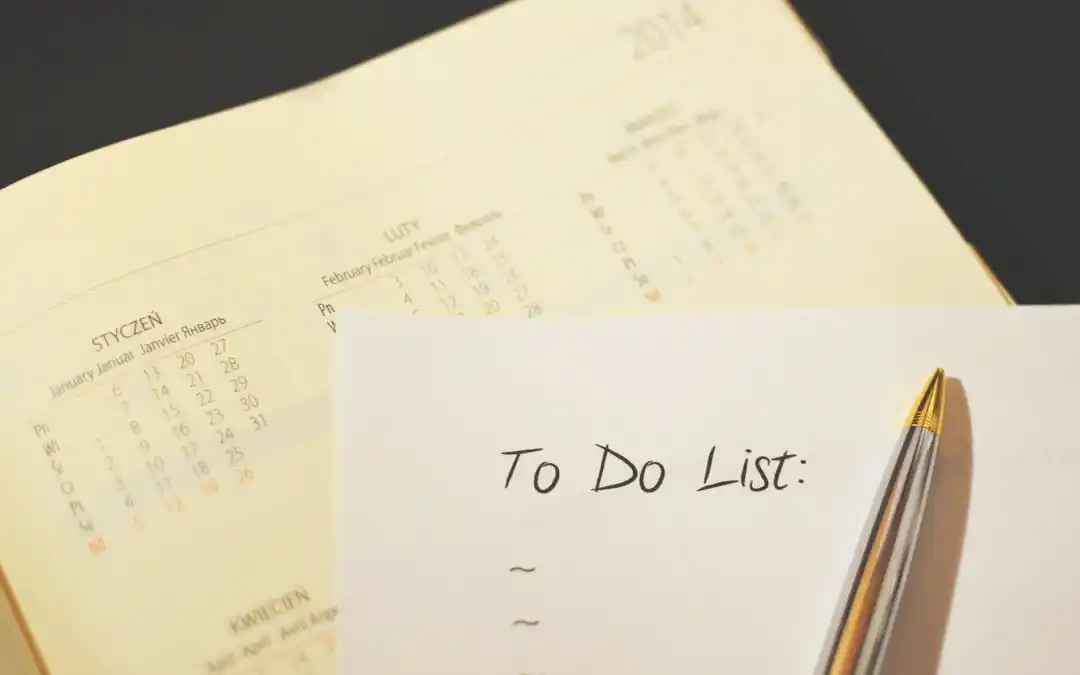
Former Colleagues Make the Best Friends
The office might not seem like the most obvious birthplace of lasting friendship. Cubicles, Zoom meetings, and quarterly goals don’t exactly scream kindred spirit. And yet, some of the strongest, most enduring friendships of my adult life have started across Slack threads and break room snacks, in Google Meet and early-morning standups.
Former colleagues make the best friends.
We don’t always get to choose who we work with, but we show up with our colleagues day after day, through stress, joy, deadlines and awkward moments. We learn to trust each other not only by bonding over mocktails and hobbies, but also by solving hard business problems together.
Daily companionship and daily work motion builds respect. And when work ends and life moves forward, that respect often evolves into a real, grown-up friendship, one grounded in mutual admiration, understanding, and shared history.
In this post, let’s explore why that happens. Why former colleagues often become our ride-or-die crew. How can we nurture these relationships? And, why is it worth the effort to keep in touch, even when life gets busy, jobs change, and we have new areas of focus.
Shared Struggles Forge Strong Bonds
There’s a reason soldiers feel bonded for life after serving together. It’s not the uniform. It’s the shared stress. The mutual reliance. The daily interdependence that makes each person accountable not only for their own performance, but for the team’s survival.
Now, working at a growing company is not war. But it is intense. High-growth environments demand quick thinking, resilience, and close collaboration under pressure. In the heat of that kind of execution, something remarkable happens. We learn who we can count on. We see who steps up when things get hard. And we remember who had our back when the going got tough.
When you’ve shared a critical product launch, a brutal fundraising season, or a reorg that nearly broke the team, you’re not just colleagues anymore. You’re witnesses to each other’s grit. And that matters.
Work Friendships Skip the Small Talk
One of the hardest things about making friends in adulthood is the awkward ramp-up. Where do you meet people? How do you move from pleasant acquaintance to real friend without making it weird?
Work shortcuts all of that.
When you spend 40 or more hours a week in the same space, physical or virtual, you naturally learn a lot about each other. You find out how someone handles stress, how they celebrate wins, how they recover from setbacks. You discover their coffee order, their commute gripes, their weekend rituals. Over time, all that shared context adds up. You don’t need to explain yourself the way you would with someone new. They already get you.
That fluency creates a shortcut to camaraderie. You might not have chosen each other, but you grew on each other. And when you leave the job behind, what remains is often a deep and easy friendship, one built on shared experience and hard-earned trust.
You’ve Already Navigated Conflict
Every friendship will eventually face tension. Disagreement is inevitable. But in a friendship rooted in former work collaboration, you’ve likely already navigated conflict together.
Maybe you butted heads in a sprint planning meeting. Maybe you disagreed on budget allocation. Maybe you had to give each other tough feedback. The point is, you survived it. You learned how to communicate a different opinion and uphold mutual respect at the same time.
That foundation matters more than most people realize.
It means when life throws something challenging your way, a cross-country move, a breakup, a health scare, your former colleague friend won’t flinch. They already know how to hold space for you and speak truth with love. They’ve done it before.
You Know What They’re Made Of
This has always mattered to me. My grandfather taught me to surround myself with people who do what they say they will do. People who follow through. Who own their impact. Who hold themselves and others accountable.
In friendships born at work, you’ve had a front-row seat to someone’s character. You know if they show up for others. If they lead with integrity. If they lift people up when no one is watching. And they know the same about you.
That kind of mutual recognition creates a powerful friendship. One that isn’t performative or fragile. One that holds.
You’re Rooting for Each Other’s Growth
There’s something special about someone who knew you before the title, the pay bump, or the big leap. And, there is something special about the people who meet you after the big leap and choose to see your heart over your title.
Former colleagues often become lifelong cheerleaders. They remember when you doubted yourself. They remember the first time you led a team or shipped a product. They were there when you aced that big presentation. Importantly, they remember the work you put in when no one was watching… your grit, growth, and quiet wins.
So when you win now, when you publish the book, get the promotion, or launch the company, they feel it with you. They are not threatened or envious. They are proud. And they have every right to be. Why? Because they walked alongside you when it was hard. They remember the nights you questioned whether you could do it. They remember the risks you took when no one was promising it would work.
They also remember when work was fun. When you grabbed lunch at the same spot every week. When you laughed too loudly in the middle of the office. When you took that long walk and came up with the solution to a long standing problem. When you stayed late not because you had to, but because you were building something together. They remember the company outing where you won the race. They remember the inside jokes, the quick coffees, the way you pulled each other through.
They saw the false starts and the big wins. They saw you keep going. They invested their time, their energy, their belief. Your win is their win, because they helped you build the road to it. And they still want to see you grow.
You Already Have a Language
Work friendships are built on shared language. Not just the inside jokes, but the frameworks, the acronyms, the quick shorthand that make conversations easy. You do not need to explain OKRs, QBRs, pipelines, or why standups always ran long. You already speak the same language because you lived it together.
That fluency stays with you. It becomes a shortcut to connection. It makes it easier to pick up where you left off. Even after months apart, one Slack message, one LinkedIn comment, one coffee date can snap you back into it in minutes. You do not need a long catch-up. You can jump right in because the foundation is still there.
The friendship does not fade. It waits. It waits through job changes, through new cities, through long silences. It waits because the connection was never just about proximity or convenience. It was built on hard days, on fun days, insightful learnings, and the kind of shared language that only comes from building something together.
You Can Learn From Each Other Forever
The best part of staying in touch with former colleagues? You get to keep learning from them.
As you grow in your careers, you develop new skills, sharper instincts, and a deeper bench of experience. You branch into different industries. You tackle different problems. You carry fresh perspectives. With former colleagues there is a natural trust and ease, a built-in belief that you can still help each other. It becomes a kind of bi-directional mentorship. You trade insights back and forth. You teach each other as you go.
You can ask for advice without ego. You can admit what you do not know. You can share tools, frameworks, job leads, and practical shortcuts that save each other time. One of you might have mastered hiring. The other might know how to navigate enterprise sales. One might have learned how to scale operations. The other might know how to close funding. You become resources for each other, offering practical know-how, teaching each other new skills.
You trade articles, gut checks, and text messages. You show each other what works, not just what sounds good in theory. You give honest feedback because you want the other person to win. You can call and say, Have you ever dealt with this? What would you do? And they will tell you the truth, not the polished answer.
You can reflect together on how much you’ve changed. You can see how far you have both come. And you can still help each other grow.
How to Keep in Touch With Former Colleagues
All of this sounds lovely. But let’s be honest, keeping in touch is hard. We move cities. We change roles. We get busy. Some people fade away. That’s normal. But the ones you want to keep? The friendships that still bring you energy, joy, or insight? They’re worth a little effort.
Here are some best practices for keeping those friendships alive long after the shared workspace is gone.
Don’t Wait for an Occasion
The biggest mistake I see people make is waiting for the perfect reason to reach out. Stop that.
You don’t need a promotion or a holiday to say hi. A quick text, for example “Saw this and thought of you,” goes a long way. So does commenting on a LinkedIn post with a meaningful insight.
Friendship is built in the small moments. Don’t underestimate how much it means to pop in with warmth and presence.
Schedule Low-Stakes Catch-Ups
Not every reconnection needs to be a full dinner. That level of planning can feel overwhelming and easy to avoid. Instead, try smaller, more frequent touchpoints. Drop in for 20-minute Zooms. Invite them to a group coffee chat or book club. Send a calendar link for a recurring “first Friday friend call.” You’ll be surprised how meaningful these small rituals become over time.
Be the One Who Remembers
Make it your job to remember the things that matter to your friends, a job search, a move, a parent’s surgery, a kid’s first day of school. Even if they’re not close anymore, people feel seen when you follow up. Be the one who remembers. Be the one who circles back. Friendships like that hold. They are built on attention, care, and showing up, even if just for a moment, when it matters most.
Find a Shared Project or Ritual
The best way to keep a friendship alive is to create something together. Start a group text where you share podcast recs. Organize an annual dinner or group trip. Invite them to co-host a panel or write a guest blog post. Shared projects deepen connection and give you a natural reason to talk more often. They make the friendship easy to sustain because you have something to plan, something to build, something to return to.
But if you don’t have time for shared projects right now, that’s okay. Friendships can also be nurtured through simple gestures, a quick text, a photo that makes you think of them, a note on their birthday. Even small touchpoints can keep a friendship alive.
Give More Than You Ask
If the only time someone hears from you is when you need a referral or a favor, that’s not a friendship. That’s a transaction.
Flip the ratio. Do not just reach out when you need something. Offer help. Share useful articles. Pass along job leads. Celebrate their wins without expecting anything in return. Be the one who notices. Be the one who sends the text that says I saw this and thought of you with no ask attached.
If you give generously and consistently, the relationship will take care of itself. You will not need to worry about whether you have earned the right to ask. You will have built enough trust that when you do need something, it will feel natural, not transactional.
Friendships grow stronger when you approach them with generosity, curiosity, and genuine care. Start there. Keep showing up. The rest will follow.
Don’t Be Weird About the Career Gap
Sometimes people lose touch because one person changed companies and the other didn’t. Or one left tech altogether. Or one is parenting full-time while the other is fundraising a Series B. Sometimes the gap feels awkward. You start to wonder, Do we still have enough in common? Do they even want to hear from me?
Stop comparing. Stop letting your different life paths become a wall. Friendship is not a competition. It is not a race to see who climbs higher or stays in the same lane. The best friendships are not built on matching career moves. They are built on curiosity, care, and the willingness to keep learning about each other as life shifts.
Ask good questions. For example, “What are you building, learning, or dreaming about right now?” Get genuinely interested in their world, even if it looks nothing like yours. You can still swap stories and be each other’s sounding boards. You can still laugh about the old days and build something new in this season.
Let your friendship evolve as your lives do. Sometimes you will run parallel. Sometimes you will not. Either way, you can still hold the connection if you choose to keep showing up.
What Former Colleague Friends Have Given Me
When I think about the friends who have stood by me through the biggest career and life moments, so many of them started as coworkers. They were there in the rooms where I learned and figured myself out. They cheered when I made the jump to a bigger role. They reminded me who I was when I was called names and made to feel small. They saw my joy, the way I light up at work, the way I find energy in building, collaborating, creating. They never tried to dim it. They recognized it. They celebrated it. They made room for me to lead with joy, and continue to remind me of that joy to this day. We are each other’s witnesses. And that, to me, is what real friendship is made of.
Closing Thoughts
Former colleagues make the best friends not in spite of the fact that we met at work, but because of it. We’ve collaborated, conflicted, laughed, cried, grown, and moved on. And in doing so, we’ve built a kind of bond that doesn’t fade with company changes. It matures. It deepens. And if we care for it intentionally, it lasts.
So if someone pops into your mind today, a former coworker who led the way and brought you joy, who challenged you, supported you, or saw you, please reach out.
Friendship doesn’t always start in obvious places. Sometimes, it starts in a budget review or a bug tracker.
But where it ends? That’s entirely up to you.
Heading 1
Heading 2
Heading 3
Heading 4
Heading 5
Heading 6
Lorem ipsum dolor sit amet, consectetur adipiscing elit, sed do eiusmod tempor incididunt ut labore et dolore magna aliqua. Ut enim ad minim veniam, quis nostrud exercitation ullamco laboris nisi ut aliquip ex ea commodo consequat. Duis aute irure dolor in reprehenderit in voluptate velit esse cillum dolore eu fugiat nulla pariatur.
Block quote
Ordered list
- Item 1
- Item 2
- Item 3
Unordered list
- Item A
- Item B
- Item C
Bold text
Emphasis
Superscript
Subscript
.png)
































.webp)








